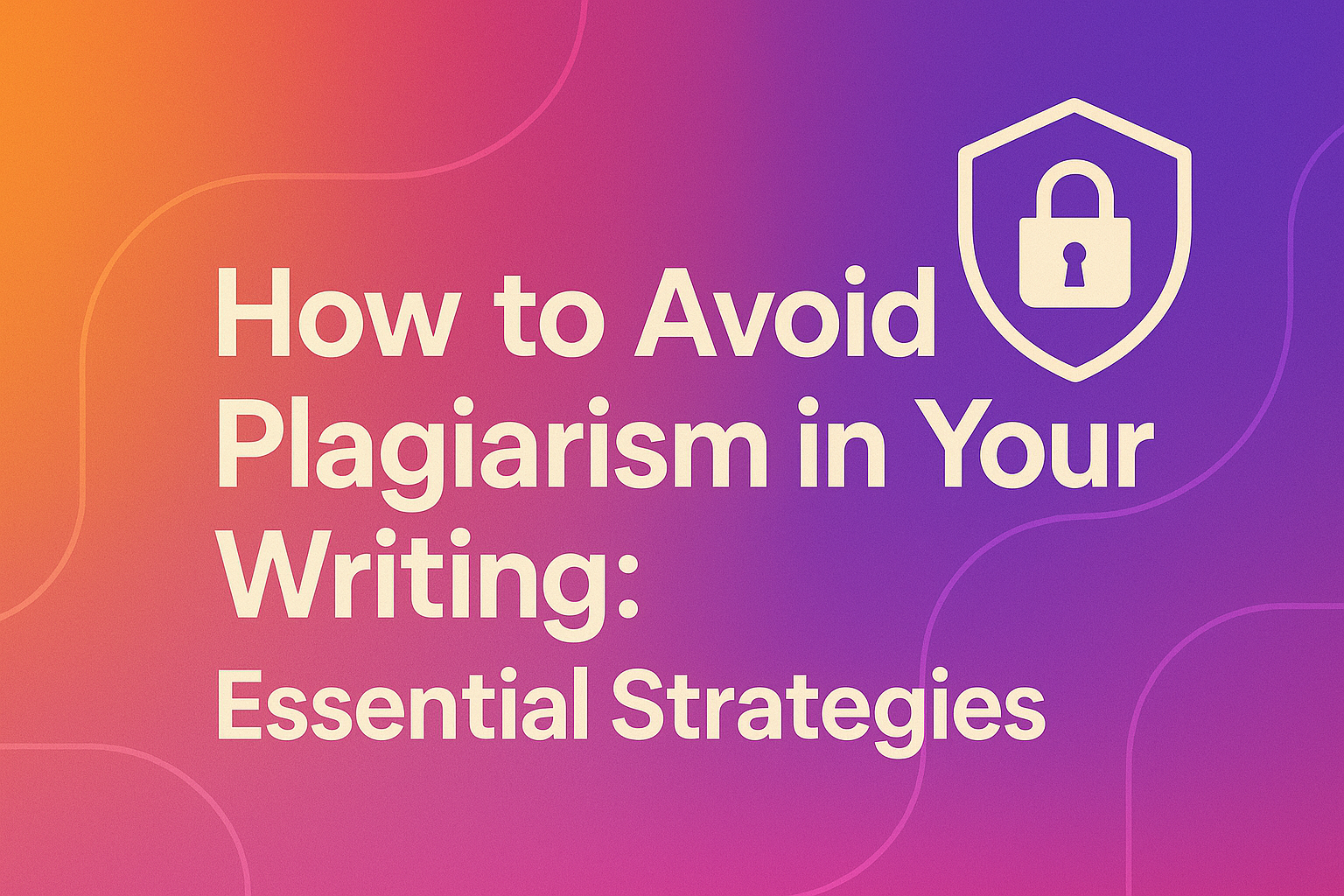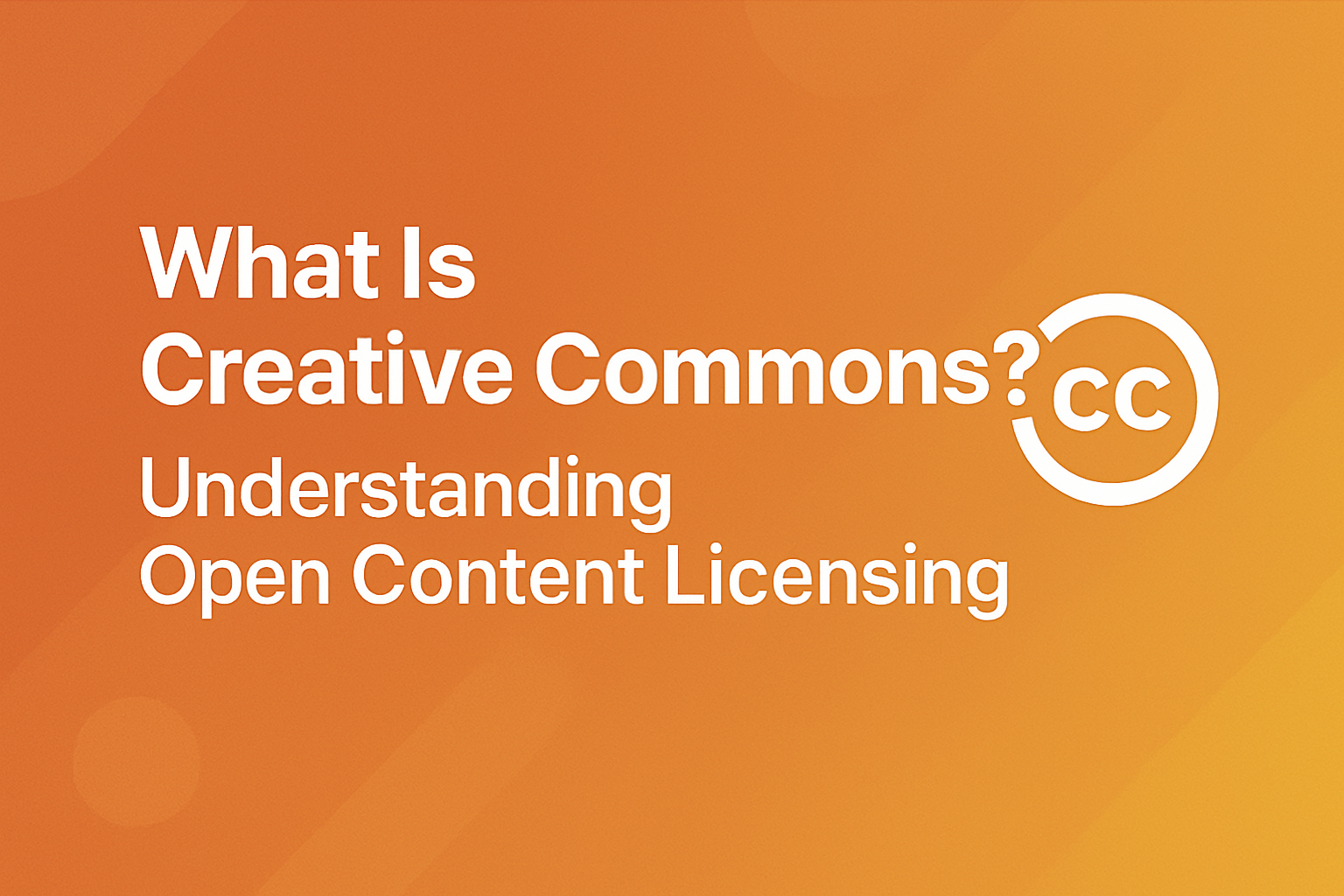
How to Avoid Plagiarism in Your Writing: Essential Strategies
Discover practical techniques to ensure originality in your writing and avoid the serious consequences of plagiarism in academic and professional contexts.
Read articleCheck your papers for plagiarism with our advanced AI tools


In today's digital world, where content sharing is just a click away, the question of copyright and proper attribution has become increasingly important. Creative Commons offers a solution that bridges the gap between traditional copyright restrictions and the open sharing of creative works.
Creative Commons (CC) is a nonprofit organization founded in 2001 by Lawrence Lessig, a law professor at Harvard University, along with several colleagues. Their mission was to create a more flexible copyright system that allows creators to share their work while maintaining certain rights.
The traditional copyright approach of "all rights reserved" often doesn't align with the collaborative nature of the internet. Creative Commons provides "some rights reserved" licensing options, giving creators more flexibility in how their work can be used by others.
Creative Commons licenses are legal tools that allow creators to:
These licenses are not an alternative to copyright but work alongside it to modify the standard terms.
There are six main Creative Commons licenses, each offering different levels of permission:
The most permissive license, allowing others to:
The only requirement is that they credit you as the original creator.
Similar to CC BY, but requires that:
This license is commonly used by Wikipedia and other collaborative platforms.
This license allows for redistribution, commercial and non-commercial, as long as:
This license lets others remix, adapt, and build upon your work non-commercially. Their new works must:
This license combines the NC and SA attributes:
The most restrictive license, only allowing others to:
Beyond the six main licenses, CC0 (or "CC Zero") is a public domain dedication tool that allows creators to waive all copyright and related rights to a work, placing it as completely as possible in the public domain.
When using content under a Creative Commons license, you must follow these guidelines:
Before using any CC-licensed content, carefully review the specific license to understand what you can and cannot do with the material.
Most CC licenses require attribution. A good attribution includes:
For example:
"Sunset Photo" by Jane Smith is licensed under CC BY 4.0. Background color adjusted.
Some creators may specify additional terms. Always honor these requirements.
Include a link to the relevant Creative Commons license to make the terms clear to others.
Several platforms offer CC-licensed content:
If you're considering licensing your own work under Creative Commons, ask yourself:
Based on your answers, you can select the appropriate license using the Creative Commons License Chooser.
Different CC licenses have different restrictions. Always check the specific license.
Most CC licenses require attribution. Only content under CC0 requires no attribution.
Creative Commons works within the copyright system, simply providing more flexible options for creators.
While you can stop offering your work under a CC license, existing copies legally distributed under the CC license remain unaffected.
Creative Commons has revolutionized educational resources through Open Educational Resources (OER). These freely accessible materials can be:
Benefits include:
As digital collaboration continues to evolve, Creative Commons plays a crucial role in:
Creative Commons licenses represent a thoughtful approach to copyright in the digital age. They provide creators with choices beyond the traditional "all rights reserved" model, while ensuring proper attribution and respect for the creator's wishes.
Whether you're looking to use others' content or share your own, understanding Creative Commons licenses helps you navigate the complex landscape of digital rights while promoting a culture of sharing, collaboration, and innovation.
By using and supporting Creative Commons, you become part of a global movement toward more open and accessible creative works—without sacrificing the recognition that creators deserve.

Discover practical techniques to ensure originality in your writing and avoid the serious consequences of plagiarism in academic and professional contexts.
Read article